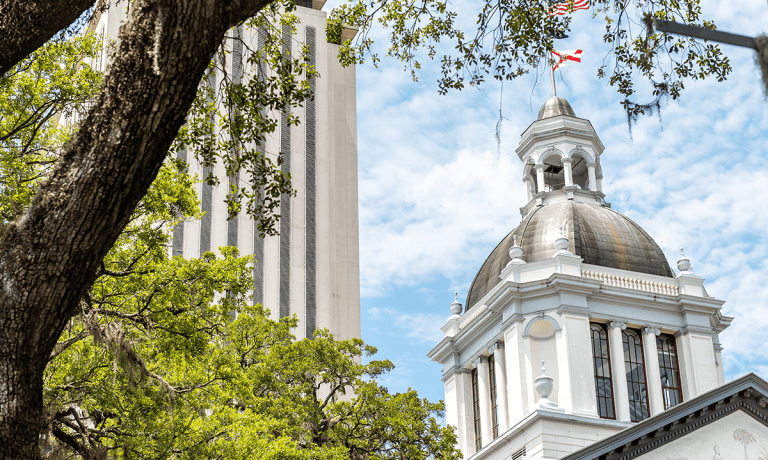
Coinbase CEO Brian Armstrong’s announcement last week that he is putting a political scorecard on the top U.S. crypto exchange’s app is a pretty good indication of how much attention the politics of crypto regulation has been getting lately.
The scorecard, which assigns letter grades to U.S. senators and representatives “will help our 103M verified users get educated on the crypto positions held by political leaders where they live,” Armstrong tweeted. “Over time, we want to help pro-crypto candidates solicit donations from the crypto community (in crypto).”
It also shows how campaign money the crypto industry is pouring into the midterm elections, led by FTX exchange CEO Sam Bankman-Fried, who has promised at least $100 million in the 2024 election cycle and is responsible for “most” of the $31.2 million crypto-affiliated Super PACs had spent on the 2022 midterm election primary races by mid-June, Roll Call reported.
But it’s not just Washington, D.C., where crypto legislation is happening and where crypto dollars (and bitcoins) are being spent to make it go the industry’s way.
A Localized Focus
That same month, a summary of 2022 cryptocurrency legislation by the National Conference of State Legislators noted that 37 states have passed or are working on bills covering digital assets, ranging from the minor — Washington and West Virginia added virtual currencies to their unclaimed property laws — to the fairly dramatic.
Wyoming, among the first states to seriously focus on cryptocurrency (and the first to make attracting the industry a major focus), passed legislation affecting the regulation of the decentralized autonomous organizations (DAOs) that govern decentralized finance (DeFi) projects.
Not all are to be taken too seriously. A 136-word Arizona bill submitted by one state senator sought to define bitcoin as legal tender in the state.
But a lot of states are far friendlier.
On May 12, Florida Gov. Ron DeSantis, a Republican, signed a bill that a pair of attorneys from the blockchain and digital assets practice of Greenberg Traurig, one of the 10 largest law firms in the U.S., said: “loosens Florida’s position on licensing requirements for virtual currency activity by clarifying that a money transmitter license is only required for persons acting as intermediaries between two parties if the intermediary has the unilateral ability to execute or prevent a transaction.”
Anyone involved in a principal-to-principal, bilateral transactions does not require a money services business (MSB) license, it added.
That came two months after another Florida law was highlighted as part of the state’s “warm embrace of the cryptocurrency agenda” by The New York Times in a story about the crypto industry’s influence in state capitals. That bill, it said, made “it easier to buy and sell cryptocurrency, eliminating a threat from a law intended to curb money laundering.”
See also: As States Battle for Crypto Industry Dollars, Regulatory Race to the Bottom Starts
Pushback on Both Coasts
On the other hand, the crypto industry is running into brick walls in some larger states, notably California and New York.
In California, the Digital Financial Assets Law — a major piece of legislation requiring crypto financial services businesses to get a license akin to New York’s highly unpopular BitLicense, is awaiting Democratic Gov. Gavin Newsom’s signature or veto.
The Blockchain Association, one of the industry’s leading lobbying groups, called it “shortsighted and unhelpful” and warned it “would impede crypto innovators’ ability to operate and push many out of the state.”
And in New York, the crypto industry tried hard and failed to stop the legislature from passing a ban on crypto mining that is now awaiting the signature or veto of Gov. Kathy Hochul — who is being lobbied just as hard.
It’s also the first state where the Blockchain Association set up a lobbying operation in the capital. Its head, John Olsen, told Coindesk in March that the moratorium “actually gained more momentum than it should have, because there’s no one really from the industry advocating the benefits of both blockchain and crypto.”
And it’s likely to make some progress, said Jacqueline Jamin Drohan, a partner at Drohan Lee, who leads the New York State Bar Association’s Task Force on Emerging Digital Finance and Currency.
In a Sept. 6 interview on the association’s website, she said that “at the state level, the regulation is clunky.”
While BitLicense is “the standard among states, perhaps even globally … it can be unmanageable for many early-stage startups … The state does need to find a happy medium, as it wants to grow its digital currency footprint and attract businesses — especially in New York City — and get them to headquarter here.”
For all PYMNTS Crypto coverage, subscribe to the daily Crypto Newsletter.